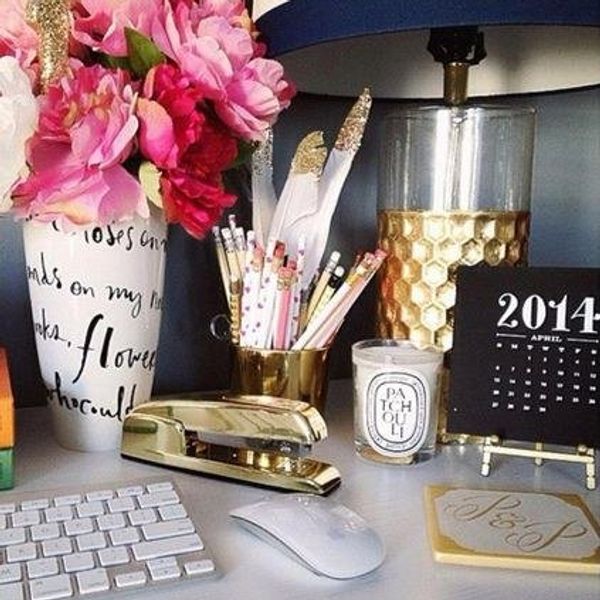1. Pick The Perfect Planner.
There are a whole array of planners and agendas on the market, each suited for everyone's unique tastes. Most people, such as myself, prefer the traditional academic year planner with a calendar and weekly spreads. But there are also full year planners, pocket-sized planners, planners with vertical weekly spreads, planners with customizable covers, and many more, so find one that you love.
Tip: If you're really picky with the way store bought planners are organized, you can buy yourself a blank notebook and turn it into a bullet journal, a task management system that is taking the planning world by storm.
2. Use The Syllabus.
Make sure you get your hand on the class syllabus, because this will have the due dates for all your major and minor assignments on it, and make sure you write down ALL the assignments in your planner, because your professor won't always warn you ahead of time when something is due.
Tip: It can help to write down how much each assignment is worth, so you know which assignments to give more weight to.
3. Use The Monthly Spread For Big Assignments.
Big assignments are those that you can't (or at least, shouldn't) do within a few days, such as studying for a big test or working on a project. These big assignments should go on the calendar sheet in your planner, so that you can see with a quick glance when they're due. That way, they don't sneak up on you when you're least expecting them.
Tip: Make sure to write your big assignments in the weekly spread too, as you'll be more in the habit of checking the weekly spread.
4. Use The Weekly Spread For Homework Assignments.
Smaller assignments like worksheets and readings are best written out in the weekly spread, because they're your more immediate concern. Since you'll probably have a lot of homework assignments, it would crowd the calendar sheet if you wrote all of them there.
Tip: Be specific with the assignment you have, so that you're not rummaging for your syllabus to figure it out. For example, don't just write you have a reading due on Monday, write out which class it's for, the page or chapter numbers, and the book.
5. Write Out Your Non-Academic Plans.
These can include things such as any weekend plans you may have with your friends or family, job interviews, athletic games, etc. This will help you when you start prepping for an exam or any other big project, because you'll know the days you're free to study.
Tip: It's best if you write them out in you monthly spread, rather than the weekly one, so that you have a better overview look at everything.
6. Plan Out When You're Studying.
If you're going to be writing out when you've got a big exam, it also helps to write out when you'll officially start studying for it. Be aware of any exams you have the same week, as you'll need more time to study for both of them. This also works for other big assignments like papers and projects.
Tip: Even if you think you can cram it, it's always better to start earlier than later! .
7. Color-Code and Highlight.
Between writing out big assignments, non-academic plans, studying days, and all your smaller assignments, your planner will start to look pretty overwhelming with all the due dates filled up on it. One good way to keep things more organized is to color-code assignments based on class or type and use highlighter for the really big things. Everyone's color-coding system is going to be different, so experiment until you find one you like.
Tip: If you do choose to color-code assignments based on class, try to have the same color notebook/binder/folder for that class to so that you can better remember which color goes with which class.
8. Transfer Goals To Next Day Or Week.
As much as we'd like to finish everything on our to-do list every day, sometimes, that's just not possible. When it comes to not finishing a reading or some other homework assignment, just make sure you transfer it over to the next day so that you don't forget you still have to do it.
Tip: Draw a star or some other significant mark next to it so that you know it's a top priority.
9. Make It Fun To Use.
Colored pens and highlights will definitely make your planner more visually appealing, but you don't have to stop there: use stickers, gel pens, tabs, or sticky notes, and whatever else you like to make your planner more personal. Decorate the cover. Doodle in the margins. Take aesthetically pleasing pics of your spreads. By making your planner fun to use, you'll be much more likely to use it and it will be much more helpful.
Tip: If you're into microblogging, there is a whole community of studying blogs (or studyblrs, as they're known on Tumblr) which make sharing your planner pics and studying habits with a large community of equally ambitious people a whole lot of fun.





















